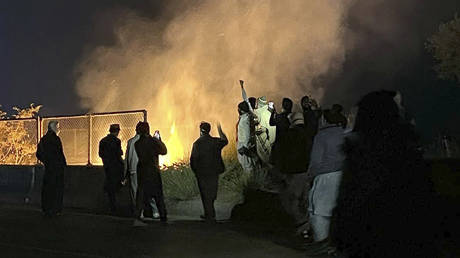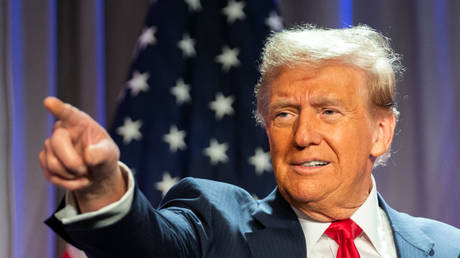Six years ago, when the Miami Dolphins shouldn’t have tanked, they foolishly and unsuccessfully decided to tank before the season even began.
Today, when they are 2-7 and might as well tank, they foolishly and incomprehensively receive an edict on how they need to win to save jobs from team owner Steve Ross. Or, if not exactly win, they need compete. Challenge. Try really, really hard? It’s not really clear.
Let’s fold that demand into recent events: The Dolphins fired general manager Chris Grier (finally), traded their best pass rusher in Jaelan Phillips (smartly) and tried to trade most anyone else on the roster but found no takers (talk about deflating).
And so in a week where the priority clearly wasn’t winning, the owner said the priority is winning starting Sunday against Buffalo at Hard Rock Stadium if jobs are to be kept, starting with coach Mike McDaniel’s.
Are we stuck in some bizarro world?
Shouldn’t the coach’s job be lost by now? Or kept, if that’s what Ross really wants? What will eight inconsequential games really mean either way?
Finally, if ever there was a time for an organization that believes in tanking to do so, isn’t this it?
It takes me back to a first interview with former Dolphins coach Joe Philbin at his start in 2012. He told of watching “Seinfeld” at night in bed. George Constanza’s “The Opposite” was one of his favorite episodes. To recap: George realized all his initial decisions were so wrong he should simply do the opposite of them to be right.
Don’t you get it?
Is the truth floating into view now like a long Tua Tagovailoa pass?
All these years I’ve felt trapped in Bill Murray’s “Groundhog Day” to the point I post an annual picture of Murray and the groundhog when the season’s officially over (it was toast at 12 days this season as the Dolphins stood 0-3).
But maybe we’ve been trapped in a “Seinfeld” episode all these misfit years, too. Maybe the Dolphins should always do the opposite of their initial plan.
This wouldn’t just help in, say, drafting Tua fifth in 2020 and passing on the sixth pick, Justin Herbert. Or taking Jaylen Waddle with the sixth pick in 2021 and leaving three-time All-Pro tackle Penei Sewell to Detroit with the seventh pick.
Do you need more?
They took safety Jevon Holland with the 36th pick in 2021 and left three-time All-Pro guard Landon Dickerson for Philadelphia at 37th.
Something more recent?
They took defensive tackle Kenneth Grant at 13 this past draft and left leading rookie-of-the-year candidate in tight end Tyler Warren for Indianapolis at 14. Not that the Dolphins needed a tight end.
But let’s return to the original point of tanking/not tanking. Full disclosure: I’m not a tank guy. The Dolphins problem isn’t so much draft order as the previous examples show. It’s not being a smart organization.
This gets back to my original statement when they started that failed 2019 tank job: Smart organizations don’t tank, and if you’re not a smart organization, don’t even try it.
The addendum to that statement is what’s happening now. Midseason. A 2-7 record. The issue isn’t just if the season fails, but how completely it fails. This, folks, is when you tank even if you don’t believe in tanking.
Exhibit A: Miami Heat president/coach Pat Riley knew winter had come by midseason in 2008 when Shaquille O’Neal demanded a trade and Dwyane Wade was hurt for the year. So he tanked. He admitted so afterward. He even ended his final pregame talk by asking his cast of no-name players about the meaning of Forrest Gump, which was his way of saying, like Forrest, he was done running the race (he retired as a coach).
That’s when you tank, how you tank and why you tank. But given a similar plight the Dolphins have some hoo-rah demand of winning. Or if not winning, then fighting. Challenging. Something.
McDaniel stated it clearly on Friday:
“This week the main objective for me was to clearly paint the picture of the way we have to play and regardless of what happens, sustaining that, sustaining the effort, that strain and just being a disciplined football team with how we go after the ball and how we protect it. That’s monumental because this is a team that preys on your failures.”
Buffalo began preying on Dolphins failures starting in the 2018 draft when they recognized Josh Allen was a franchise quarterback. The Dolphins’ front office thought his passes were too inaccurate. The Bills front office charted every pass he made and saw his poor completion percentage as a senior was in part because receivers dropped the most passes among major colleges.
Add Allen to The Opposite game.
Add 2025 to the list of face-planting Dolphins seasons.
At 2-7, it’s time to win to save jobs.





